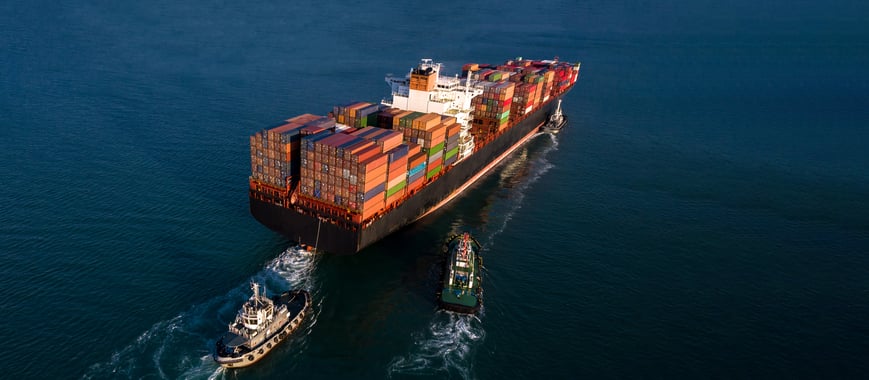
In an increasingly competitive global marketplace, reducing landed costs without compromising compliance is more critical than ever. One strategic opportunity for U.S. importers lies in leveraging the First Sale for Export (FSFE) valuation methodology. When correctly applied, FSFE can bring significant duty savings while meeting all regulatory expectations from U.S. Customs and Border Protection (CBP).
What is First Sale for Export?
The FSFE rule enables importers to base U.S. Customs duties on the initial sale of goods, typically between the manufacturer and a middleman, rather than the final price paid by the U.S. buyer. This differs from the standard practice where duties are calculated on the final sale price between the middleman and the U.S. importer. By using the FSFE approach, businesses can legally lower the dutiable value of their imports, which can lead to considerable duty savings over time.
It’s important to note that FSFE is not an alternative valuation method but a valid application of the transaction value principle under U.S. Customs regulations.
Why FSFE Matters
The most immediate benefit of FSFE is cost savings. Companies can reduce duties and improve their bottom line by using the first sale price. Over time, these savings can become substantial, especially for importers handling high volumes or high-duty-rate goods.
Beyond the financial impact, FSFE reinforces strong compliance practices. CBP requires importers to demonstrate reasonable care in how values are declared. Implementing FSFE encourages a more structured, well-documented supply chain process that supports transparency and audit readiness.
In some cases, businesses may also be able to recover duties on past transactions that meet FSFE criteria through Post Summary Corrections (PSCs) or Protests. This is where Tradewin’s expertise can help maximize both recovery and compliance.
Conditions for Using First Sale for Export
In order to apply the First Sale for Export (FSFE) methodology and realize duty savings, there are certain conditions that must be met. U.S. Customs and Border Protection (CBP) has specific requirements that need to be satisfied to ensure that FSFE is properly applied. The most important conditions include:
- Arm's Length Transactions:
- The transaction must be between unrelated parties, with the sale price reflecting fair market value without internal arrangements or incentives between the seller and buyer.
- Bonafide Sale
- The sale must be legitimate, with the intent to transfer ownership of goods and not structured solely to lower duties.
- Export Intent
- The goods must be intended for export to the U.S., with the first sale occurring as part of an international transactions.
- Reasonable Care
- Importers must exercise reasonable care in determining the eligibility of FSFE and in maintaining accurate records to demonstrate compliance with CBP regulations.
Meeting these conditions ensures that FSFE can be applied correctly, allowing businesses to benefit from duty savings while staying in compliance with CBP regulations.

Where Tradewin Comes In
Implementing FSFE requires more than identifying eligible transactions. It involves detailed analysis, careful documentation, and ongoing coordination with all parties in the supply chain.
Tradewin begins by conducting a feasibility review to determine if FSFE is viable for your business model. From there, we manage the end-to-end process:
- Engaging with suppliers and reviewing purchase documentation
- Recommending procedural updates where needed
- Assisting with U.S. Customs ruling requests when appropriate
- Coordinating globally with our teams at both origin and destination
Should your company have missed previous FSFE opportunities, Tradewin can assess your historical entries for eligibility and manage the duty recovery process on your behalf.
Common First Sale for Export FAQs
- Is a formal application required to use FSFE?
- No formal application is needed. However, importers must maintain proper documentation and conduct due diligence to support their use of FSFE.
- What if I work with multiple suppliers?
- Each FSFE determination is specific to the transaction path—supplier, middleman, and importer. While similarities can streamline review, each must be evaluated individually.
- How long does implementation take?
- Timelines vary based on operational complexity and existing documentation. Tradewin will provide a tailored estimate following our initial review.
- Can past duties be recovered?
- Yes, recovery is possible if entries are still within the liquidation window and documentation meets CBP standards. Tradewin manages this process efficiently and compliantly.
- Is FSFE Right for You?
- If your supply chain includes multi-tiered international transactions and direct shipments to the U.S., FSFE could deliver meaningful cost savings and compliance benefits. Tradewin can help you explore the opportunity and guide you through implementation every step of the way.
Contact Tradewin today to learn how First Sale for Export can support your global trade strategy.





